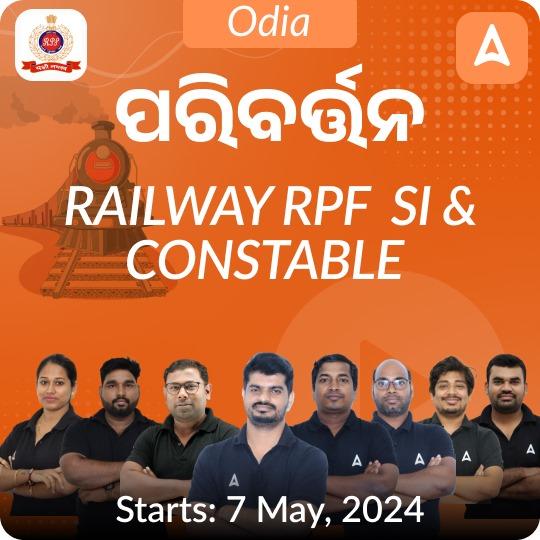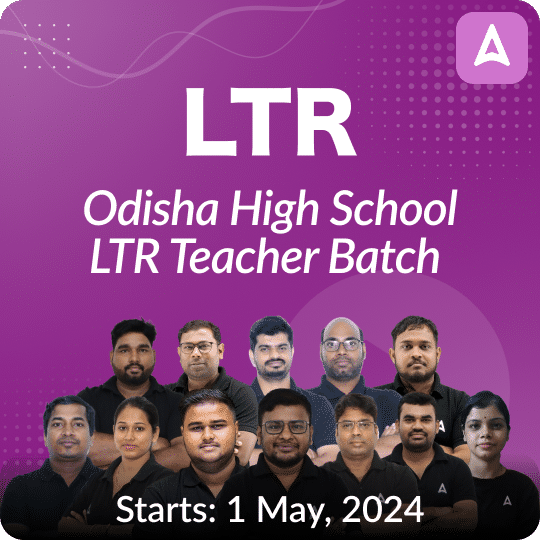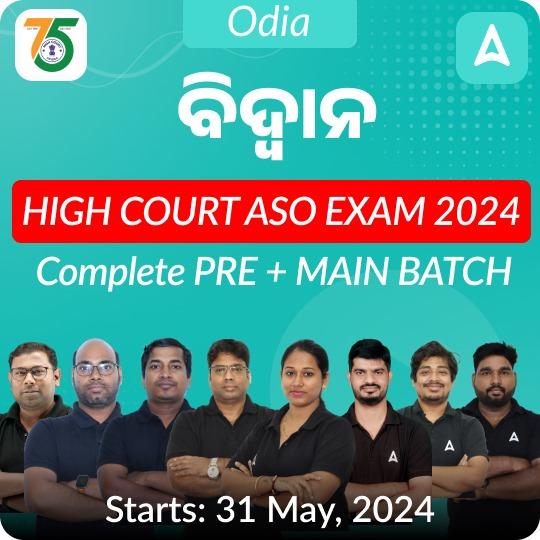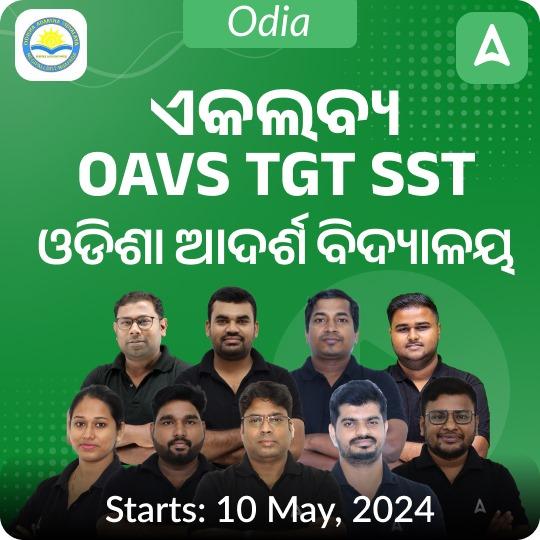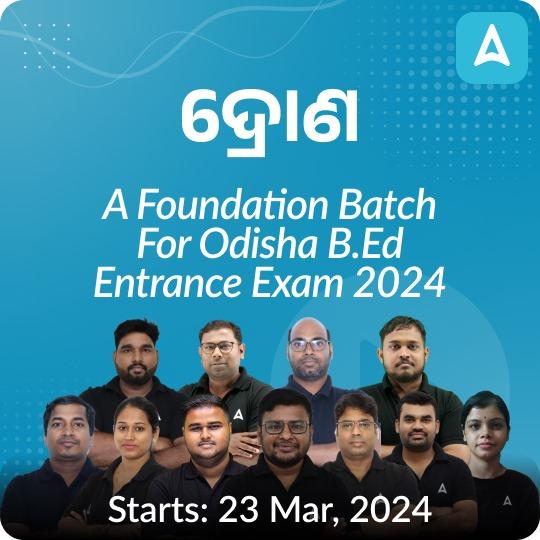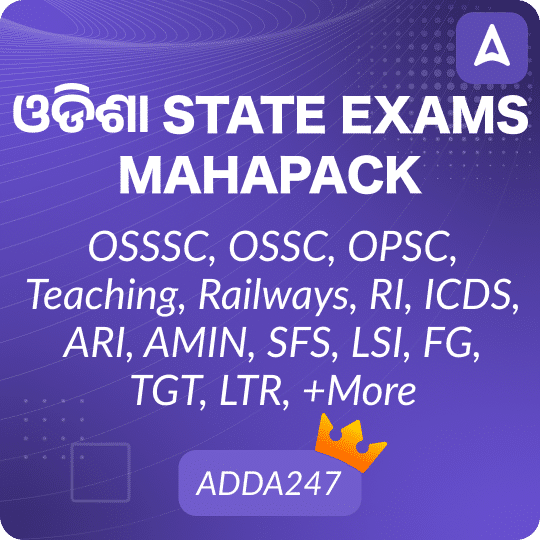Polity MCQs and Answers: Polity MCQs are very important for OPSC, OSSC, OSSSC & Other State Exams. Aspirants who are willing to apply for the various Government exams 2022 must go through the topics of Polity for competitive exams, as Polity is a key part of the syllabus.
Polity MCQs
Q1. From the following languages given below pick out of the one which is official language of a Maharashtra—
(a) Hindi
(b) Urdu
(c) Marathi
(d) Gujarati
S1. Ans.(c)
Sol.
Marathi is the official language of Maharashtra and co-official language in the union territories of Daman and Diu and Dadra and Nagar Haveli.
Q2. How many schedules the Constitution of India contains?
(a) 9
(b) 10
(c) 11
(d) 12
S2. Ans.(d)
Sol.
Indian Constitution originally had eight schedules. Four more schedules were added by different amendments, now making a total tally of twelve. Schedules are basically tables which contains additional details not mentioned in the articles.
Q3. Article 1 of the Constitution declares India as—
(a) Federal State
(b) Quasi-Federal State
(c) Unitary State
(d) Union of States
S3. Ans.(d)
Sol.
Article 1 in the Constitution states that India, that is Bharat, shall be a Union of States. The territory of India shall consist of: The territories of the states, The Union territories and Any territory that may be acquired.
Download ADDA247 Odia APP – Appear Latest Exam Test Series & Live Classes
Q4. Total Number of Articles in the Indian Constitution are ?
(a) 395
(b) 396
(c) 398
(d) 399
S4. Ans.(a)
Sol.
Constitiution of India is world’s lengthiest written constitution has 395 articles in 22 parts and 12 schedules.
Q5. How many languages have recognized by the Constitution—
(a) 15
(b) 18
(c) 22
(d) 24
S5. Ans.(c)
Sol.
The Eighth Schedule to the Indian Constitution contains a list of 22 scheduled languages.
Q6. Which of these is NOT included as a Fundamental Right in the Indian Constitution?
(a) Right to freedom to speech
(b) Right to equality before Law
(c) Right to constitutional remedies
(d) Right to equal wages for equal work
S6. Ans.(d)
Sol.
The six fundamental rights recognised by the Indian constitution are the right to equality, right to freedom, right against exploitation, right to freedom of religion, cultural and educational rights, right to constitutional remedies.
Q7. Which fundamental right is called as the heart and soul of the Indian Constitution?
(a) Right to constitutional remedies
(b) Right to freedom to speech
(c) Right to equality before Law
(d) Right to freedom of religion
S7. Ans.(a)
Sol.
Dr. B.R.Ambedkar called ‘Article 32’ of the Indian Constitution i.e. Right to Constitutional remedies as ‘the heart and soul of the Constitution’.

Q8. Right to property was removed from the list of Fundamental Rights during the rule of:
(a) Indira Gandhi Government
(b) Morarji Desai Government
(c) Narasimha Rao Government
(d) Vajpayee Government
S8. Ans.(b)
Sol.
The 44th amendment to the Indian Constitution was passed after the revocation of internal emergency in 1977. It was instead made a constitutional right under Article 300A which states that. ” No person can be deprived of his property except by authority of law.”
Q9. Political right does NOT include which of the following?
(a) Right to vote
(b) Right to life
(c) Right to contest in election
(d) Right to lodge complaint with executive bodies of the Government
S9. Ans.(b)
Sol.
The Constitution of India provides Fundamental Rights under Chapter III. Article 21. Protection Of Life And Personal Liberty: No person shall be deprived of his life or personal liberty except according to procedure established by law.
Q10. Which of the following rights is NOT granted by the Constitution of India at present as a fundamental right?
(a) Right to equality
(b) Right to freedom
(c) Right to property
(d) Right against exploitation
S10. Ans.(c)
Sol.
In the year 1977, the 44th amendment eliminated the right to acquire, hold and dispose of property as a fundamental right. However, in another part of the Constitution, Article 300 (A) was inserted to affirm that no person shall be deprived of his property save by authority of law.
Q11.Which of the following is not considered a Democracy?
(a) USA
(b) Norway
(c) India
(d) China
S11.Ans.(d)
Sol. Four divisions, the legislative, executive, judiciary, and military, comprise the Communist Government of the People’s Republic of China.
Q12.Which of the following is a feature of Presidential form of government?
(a) It protects the freedom of people
(b) It ensures the speedy execution of policies
(c) Fix term stabilizes the system
(d) All of these
S12.Ans.(d)
Sol. The presidential form of government is that in which the executive is not responsible to the legislature. An example of such a system of Government is the United States of America (U.S.A)
Q13.The convention that “once a speaker always a speaker” is followed in-
(a) UK
(b) USA
(c) France
(d) India
S13.Ans.(a)
Sol. In UK once elected, a Speaker continues in office until the dissolution of Parliament, unless he or she resigns prior to this. Customarily, the House re-elects Speakers who desire to continue in office for more than one term.
Q14.From where did India adopted the federal system with a strong centre?
(a) United States of America
(b) Canada
(c) United Kingdom
(d) France
S14.Ans.(b)
Sol. The Federal System with Strong Centre has been borrowed by the Indian Constitution from Canada.
Q15.Which of the following is a feature of Presidential form of government?
(a) It protects the freedom of people
(b) It ensures the speedy execution of policies
(c) Fix term stabilizes the system
(d) All of these
S15.Ans.(d)
Sol. The presidential form of government is that in which the executive is not responsible to the legislature. An example of such a system of Government is the United States of America (U.S.A)



